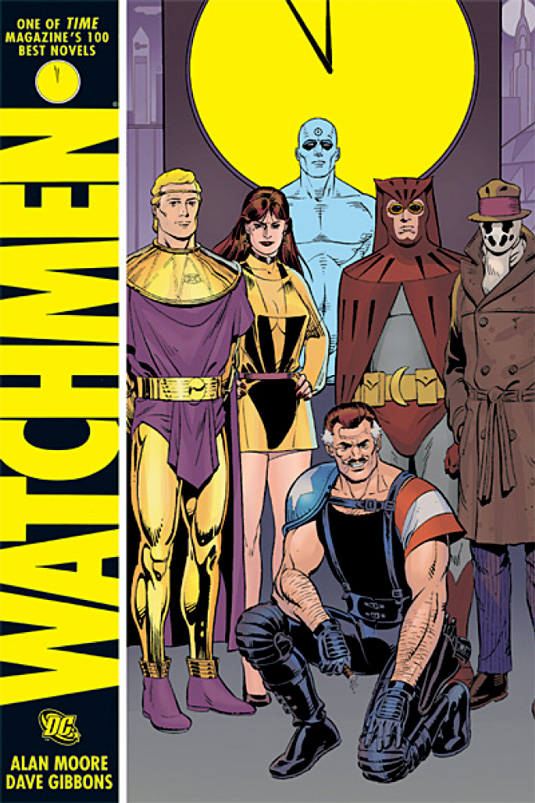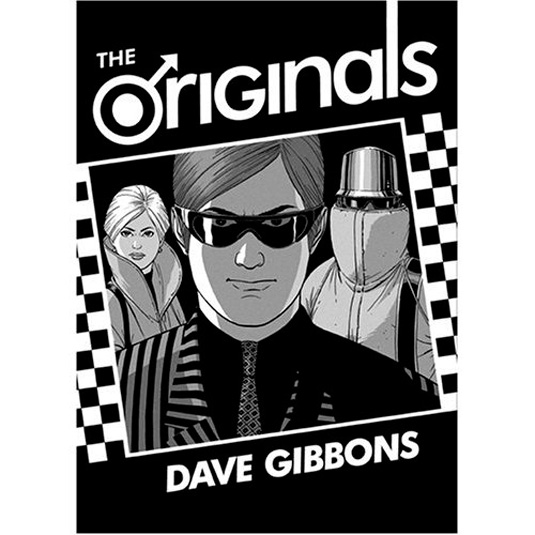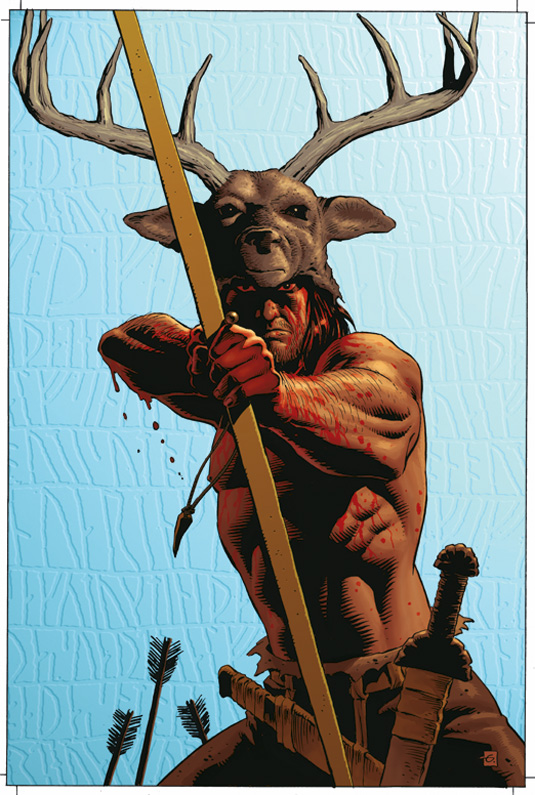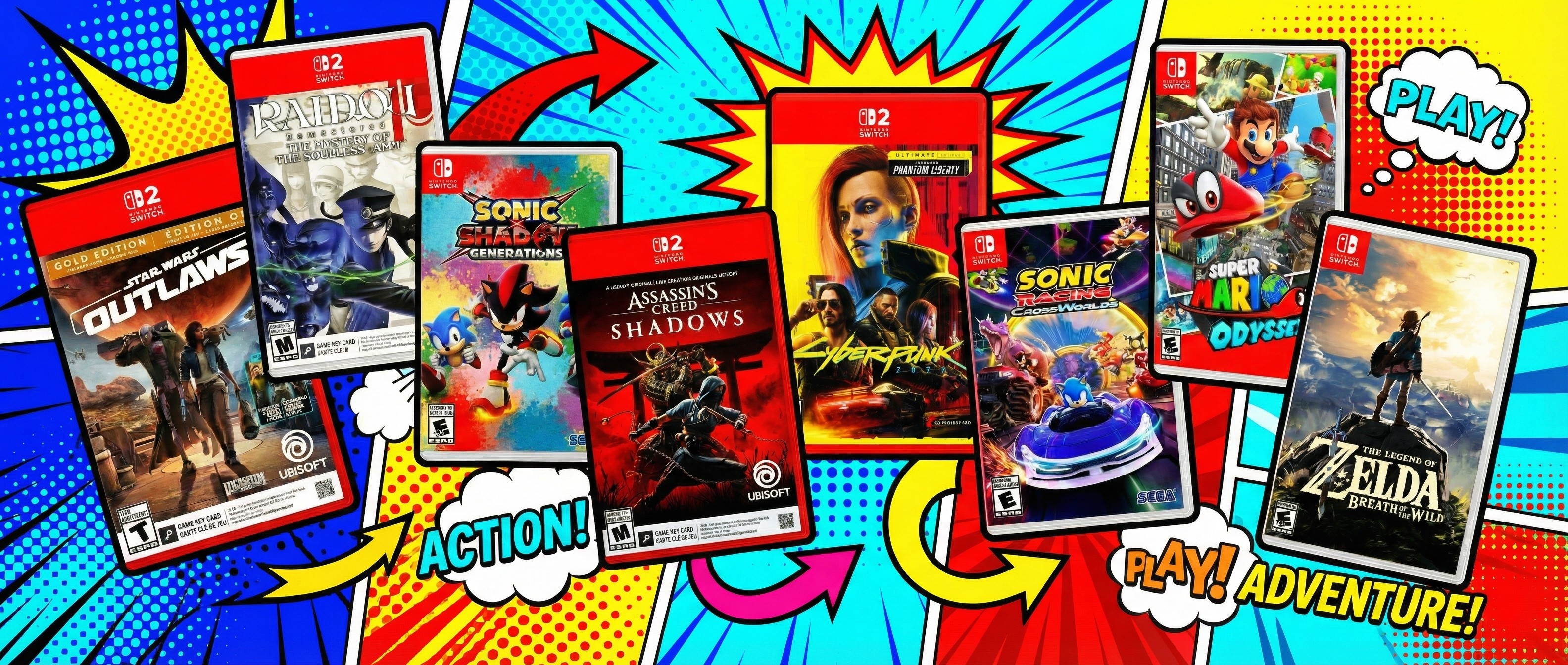INTERVIEW: Watchmen legend Dave Gibbons
Like comics? Then you'll LOVE this awesome in-depth interview with comic book legend Dave Gibbons, in which he reveals everything from his inspirations to what it's like to take a phone call from Stan Lee in your kitchen.
QUESTION: Are you still as motivated and excited by comic books as you were when you started out?
"Well sometimes, I mean obviously what starts as a bit of a laugh when you're younger or you're doing what you feel is your life’s mission or your calling or the thing that really excites you, it does mutate into a job. And you do have to occasionally do things that you don’t enjoy quite so much. Although I have been very fortunate, I haven’t had to do a lot of that.
"Certainly, in recent years, having attained a reasonable reputation and some success, I tend to only work on the things that I want to work on. Other problems come along; if you’ve had success, you are expected to be and you expect yourself to continue to be successful.
I still think thatcomic books are areally exciting medium
"But I still find comics exciting and I still go to my local comic book store and get quite excited about certain series. And I follow comic news on the Internet and so on. I also love to go to conventions, mainly to meet the readers and get some sort of considered feedback. You obviously get feedback on the Internet but its usually a bit reactive and often overstated. But yes, I still think that comic books are a really exciting medium."
QUESTION: Have you seen any comic books that have caught your eye (good or bad)?
"Well, I tend to follow the work of my friends. I like anything that Mark Millar writes, anything that say Mike Mignola, Frank Miller or José Luis García López draws. I also like what Ed Brubaker and Sean Phillips do, Fatale and Lawless, things like that.
"Superheroes don’t quite float my boat as much as they used to but there are some wonderful artists out there and great writers. Talking of great writers, obviously anything Alan Moore writes I would buy.
I think it's exciting thatthe medium has evolved with the times
"I do think that the standard of work you get in comics nowadays is far and above what it was when I was starting out. It's addressing a different audience, it used to be weekly or monthly thrilling, cliff hanging entertainment for young boys. But now it is obviously what it should be, which is a mature medium to tell stories of all lengths and types to all sort of people. So I think it's exciting that it's evolved with the times."

QUESTION: What has been your favourite project to work on and why?
"I think Watchmen is always going to loom very large in my legend. That was a great thrill - to do to work on such great scripts and do something that has been so well received, widely read and has been so influential. And which has added something to the medium that I’ve loved since I was a little kid. That has to make that a favourite.
Daily design news, reviews, how-tos and more, as picked by the editors.
"There are other things that I’ve done, some well-known, some others hardly known at all. I loved working on Dr Who at various points depending on the stories and the writers that I was working with. I also loved some of the little future shocks that I did for 2000AD.
Watchmen is alwaysgoing to loom very largein my legend
"Although it was hard work, I’m really glad that I managed to do my own graphic novel The Originals, which was written and drawn by me and took about 18 months of my time. That was quite lonely though. One of the things I love about comics is collaborating and that novel was just me sat in a room, and let me tell you, not a very nice room. It was a cheap office that I rented as a stop-gap and there was a skylight, but there wasn’t even a window to look out of. But, despite that, I was really glad that I got that done exactly the way that I wanted to do it."

QUESTION: How did you develop your own style and how has it changed over the years?
"We're always pray to our influences and sometimes wish we could shake them off. But we are what we are. I guess you build on what you learn and start doing more of the things you like and less of what you don't like.
"I can look at drawings of mine that are 30 years old and still see the same things in them that I don't like in my work today. I sometimes look back on the work that I've done and I'm amazed that I did it as I have no recollection of doing it but can actually enjoy it.
We're always pray toour influences and sometimes wish wecould shake them off
"It’s a strange thing that happens, just to digress, when you do look at a piece of work - and I don’t know if your readers find this - but before you start work you think it's going to be the best piece of work you've ever done. And you start work on it and, of course, it is work and it’s a little bit hard sometimes and it doesn’t turn out quite the way you want and you struggle with it as the deadline is rushing upon you. So you finish it and as you put the pages in the parcel to send them off or you scan them in and email them, you think it's the worst thing you've ever done and wish you'd spent more time on it. But then a couple of years down the line you pull that comic book out of a drawer and you flip through it and think it's actually quite good!
"And, of course, the reason that this process happens, I’ve discovered, is that you as the artist are in the unique position having seen in your head what it could’ve been. But all that anyone else sees is what it is. And probably, if you are a professional artist, what it is, is going be reasonably good. But, of course, it is never going to be as good as the dream, mythic version of it that the artist saw before they started.
You as the artist are inthe unique position having seen in your head what it could’ve been
"So, I’m always aware of that with my work and I sometimes look back on things that I didn’t particularly like at the time and think it's not as bad as I thought at the time. But I think really my favourite things are the things that I enjoyed drawing the most, where I was at the time of life where I could give it what it needed and I had the skill necessary but didn’t have the pressure to inhibit me."

QUESTION: Do publishers such as Marvel, 2000 AD and DC allow artists much creative freedom?
"One of the great joys of working in comics is that you do get a lot of creative freedom. I’m working on a piece of merchandising art for a company at the moment that I am getting pretty well paid for. But it's all about revisions and input from the client and all that sort of thing, which is fine and I suppose that’s why you get the big bucks.
"But I actually like just drawing comics and more or less everything that I’ve drawn for the past 40 years has appeared in print and has hardly been changed at all. On very, very few occasions have I had work back to change it or has it been changed in house.
Publishers arepublishers, really
"And that’s one of the things that I think is wonderful about comics - the supply chain from the mind of the creator to the mind of the reader or the audience is so short and uncompromising and on a very personal level. Most publishers are the same, there’s no great difference between DC, Marvel, 2000AD. You may feel a little more comfortable at some of them than others because of personalities or if you do a lot of work for them you become one of the family. But publishers are publishers, really."
Read and listen to more from Dave on the next page!

The Creative Bloq team is made up of a group of art and design enthusiasts, and has changed and evolved since Creative Bloq began back in 2012. The current website team consists of eight full-time members of staff: Editor Georgia Coggan, Deputy Editor Rosie Hilder, Ecommerce Editor Beren Neale, Senior News Editor Daniel Piper, Editor, Digital Art and 3D Ian Dean, Tech Reviews Editor Erlingur Einarsson, Ecommerce Writer Beth Nicholls and Staff Writer Natalie Fear, as well as a roster of freelancers from around the world. The ImagineFX magazine team also pitch in, ensuring that content from leading digital art publication ImagineFX is represented on Creative Bloq.
